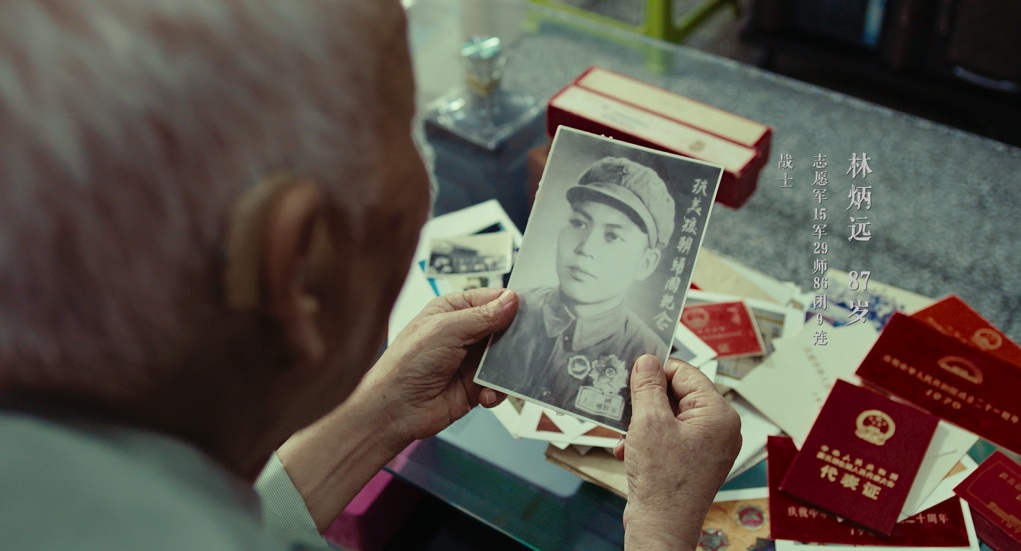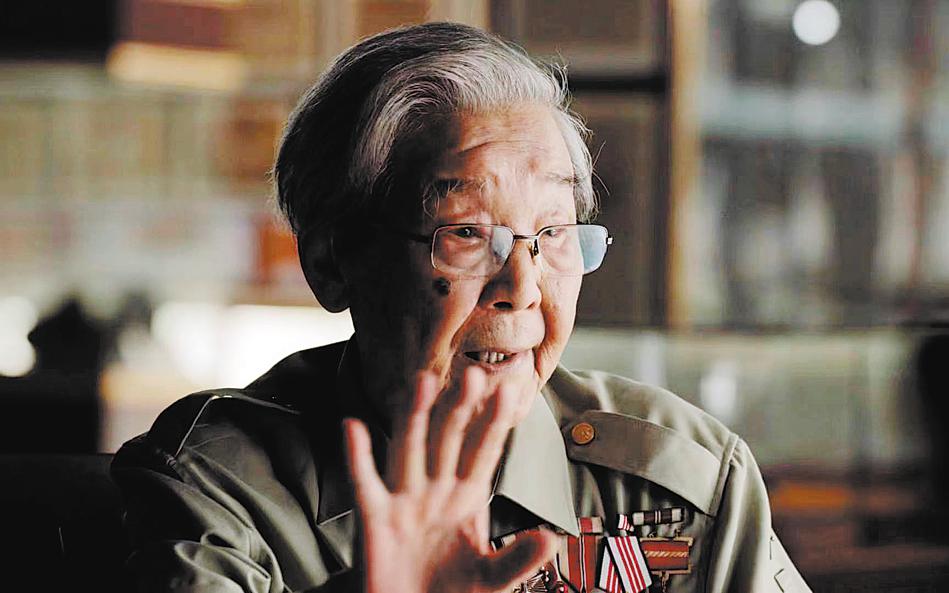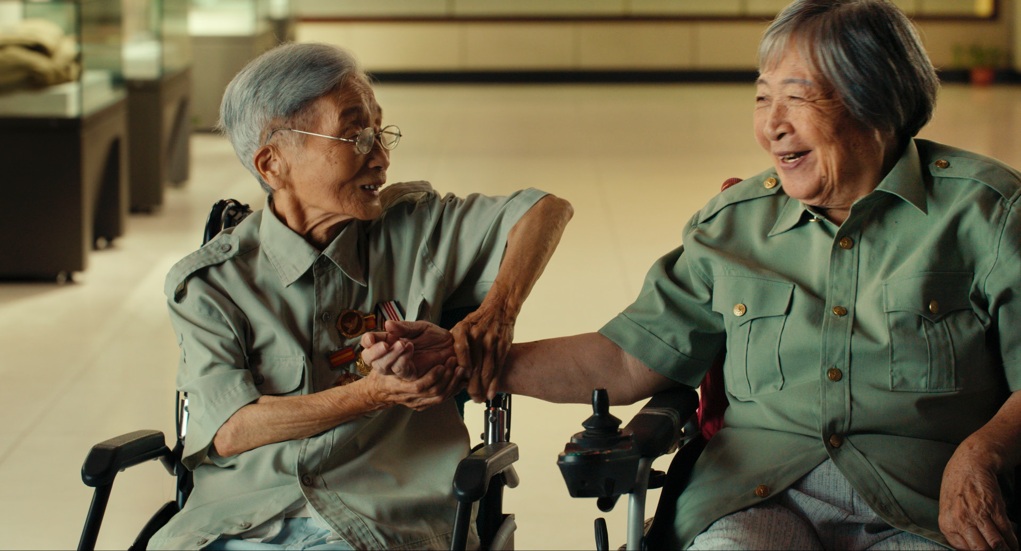
Three years ago, Beijing Film Academy graduates Song Kunru and Li Mu were engaged in shooting a commemorative film about war heroes in Southwest China's Sichuan province.
During the shoot, Song discovered a folded photo in the home of Ye Fakun, an 83-year-old veteran who lost both his legs during the War to Resist US Aggression and Aid Korea (1950-53).
The image features Ye, who was 20 years old at the time, standing with a fellow soldier who wasn't fully captured in the frame, merely a hand placed on Ye's shoulder. The young man was killed by an aerial bombing on the very day the photo had been taken, making Ye reluctant to reminisce about the heartbreaking moment.
After hearing war stories recounted by Ye and approximately 50 other veterans who joined the Chinese People's Volunteers army, Song was keen to shoot a documentary, taking it as a responsibility to record the "disappearing" history of the war of 71 years ago. By the end of August, three of the 26 veterans featured in the documentary had passed away.
The 98-minute documentary Remembering 1950 was released in domestic theaters earlier this month, garnering a score of 8.9 points out of 10 on Douban, one of the country's most popular online review aggregators.
"Most of the veterans rarely accepted interviews. Sometimes, we had to sit with them silently for a long time to wait for them to speak. When they finally started to talk, it made us feel like we were allowed to enter their hearts, which had been sealed for many years," recalls Song.
Over the course of nearly four years, Song alongside Li, who is the documentary's scriptwriter, traveled to multiple cities, including Chengdu in Sichuan and Shenyang in Liaoning province, accumulating around 80 hours of footage.

The documentary features interviews with the 26 veterans-aged between 88 and 95-whose military duties varied from scouting the enemies' positions to giving medical care to the injured.
Ren Hongju, a Beijing native who crossed Yalu River in 1951, serves to some extent as the "backbone" of the documentary with his talent for arresting storytelling, honed as a former member of a military art troupe, recalls Song.
Later promoted to the role of war reporter, who interviewed many soldiers in caves and trenches on the battlefields of the Korean Peninsula, Ren has "an exceptional memory for details", says the director.
As the first veteran to appear in the documentary, Ren is seen in the opening scene wearing dozens of medals over his military uniform, speaking softly to convey some of the most traumatic moments of the war.
Some of his memories recounted in the film include the gruesome death of a young troupe actress, who once played the lead in the well-known story of the White-Haired Girl, and the time the then 17-year-old Ren sneaked into a nearby village on a scouting mission and was horrified to discover a cohort of enemy soldiers asleep in one of the houses.
There are also some heartwarming scenes in the documentary, including one in which two female veterans have a joyful reunion after many years.
For Song and his crew, the project took them on a special journey to revisit history from a more private perspective, and redefine their idea of heroes.
"All those soldiers who survived the war and returned safely to China are heroes. Their stories deserve to be heard by more people and history should never be forgotten," says Song.

Li, a scriptwriter educated in the United Kingdom, adds: "Actually most of the veterans who had experienced a war are often unwilling to revisit that dark chapter of their lives, and most of them rarely talk about the past to their grandchildren.
"But we hope this film will not only spark interest in history among younger people, but also encourage them to spend a bit more time with their grandparents, to hear their stories of when they were young and passionate about their dreams," he says.
However, just as most theatrically released documentaries struggle for limited screenings due to the preference of cinema managers for showing more lucrative commercial blockbusters, Remembering 1950 has faced a similar dilemma-its screening occupancy had fallen to 1.0 percent as of Wednesday, according to the live tracker Beacon.
"Unlike most projects with a similar theme, which employ a grand scope, the documentary revisits the past with a restrained tone through the perspectives of individuals, thus making it distinctive and more powerful to stir in-depth thoughts. It deserves to have more screenings to help youngsters take a more profound outlook of our history," one Sina Weibo user posted on the microblogging platform.
As a tribute to these veterans and their compatriots, Song says crew members have decided to donate their earnings from the first two days of box-office receipts, totaling 227,000 yuan ($35,230), to a charity organization founded in 2016 that helps veterans of the Chinese People's Volunteers.
"We can understand the financial stress for the cinema operators, but we hope they can give us more screenings to enable more people to watch the film, which will make it possible for us to help more veterans," says Song.













